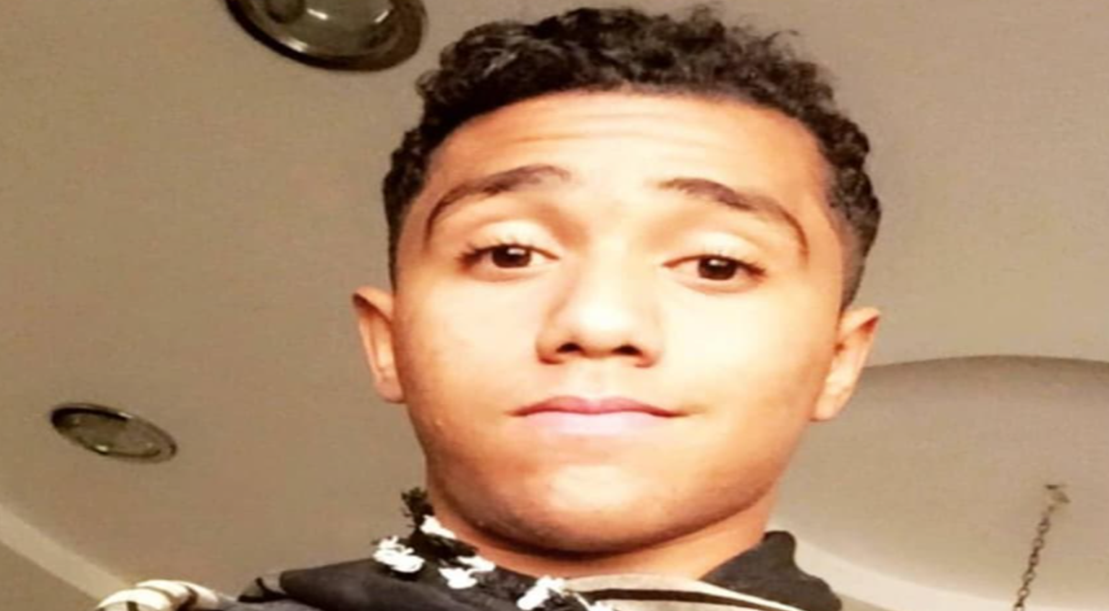Ali Hasan Al-Jamri was a 17-year-old high school student when he was arrested without a warrant at his family home in January 2020. He was subsequently subjected to enforced disappearance for 37 days before he was able to see his parents. This, however, remains the only time Ali met with his family after his arrest: due to COVID-19, all family visits were cancelled, and because Ali was then infected with scabies, he was put in isolation and denied video calls. To this day, he remains in isolation at Dry Dock Detention Center while he awaits the issuance of his judgment, and he shares his cell with two other detainees.
On 16 January 2020, Ali’s family was surprised when at about 2:30 a.m. large numbers of masked riot police, Commando forces, and security forces of the Ministry of Interior stormed and raided their home. When Ali’s father opened the door, an officer said they had an order to arrest Ali Hasan Al-Jamri, but they did not present any warrant. They entered Ali’s room, where they arrested him, handcuffed him, searched the room and seized his phone and identity card. When the officer was asked about the reason for the arrest, he indicated that it was for a criminal reason, and then he forced Ali into a private car and took him to an unknown destination.
The next day, Ali called his family at 9:00 a.m. for about half a minute to inform them that he was at the Criminal Investigations Department (CID), where he remained for a month. During that time, he called his family nearly every day for half a minute, but the call was under personal monitoring, where Ali would be told what to say. Throughout the interrogation, he remained at the CID without his parents’ knowledge of his whereabouts, because he was not allowed to disclose his location during his daily calls. His parents were finally allowed to see Ali for only half an hour 37 days after the day of his arrest, and this was the only time they met before Jau prison’s administration cancelled visits due to the pandemic. Ali revealed to his family that he was subjected to torture while at the CID and had to be transferred to the hospital because of the injuries inflicted during torture. However, he mentioned no details about the forms of torture or whom had inflicted the torture, because Ali was only able to see his family once and he did not want to hurt their feelings by going into the details of his mistreatment.
Ali was not allowed to meet with or even appoint a lawyer during investigation even after he requested one. Additionally, due to the COVID-19 pandemic, precautionary measures, and his contracting of scabies, he did not have the adequate facilities to prepare for his trial. Ali was accused of training under the Iranian Revolutionary Guard; he was charged with terrorism and organizing a terrorist cell linked to the case of Qasem Suleimani, although Ali’s parents insist that their son only travelled to Iran when he was four years old. His confessions, extracted under torture and mistreatment, might be used against him when his judgment is issued on 31 January 2021. However, he has denied all charges before the General Prosecutor and confirmed that all confessions were coerced and that he was forced to sign them.
Ali only recently turned 18, and suffers from psychological distress due to his detention and being taken away from his family and school. Additionally, Ali suffers from a skin disease. He called his family in November 2020 to tell them that he was suffering from a severe itch, and that he believed that he had a skin condition which could be scabies. He told them that he was in a cell that did not meet hygienic standards, and that young detainees were mixed with foreign detainees suffering from infectious diseases, which was causing the spread of infection. On 30 November 2020, Ali’s parents were waiting for a video call from their son, but they did not receive one. They were later informed that he was transferred to Salmaniya Hospital to be seen by a skin specialist and was then transferred to sanitary isolation because he had scabies. Because he was in isolation, he was denied video calls. Up to this day, he remains in isolation, where he shares his cell with two other detainees. His family’s fears and concern about his psychological and physical health have increased in light of the denial of video calls. During regular, non-video calls, he complains to them about his continued physical and psychological suffering as well as his poor health.
The treatment Ali has suffered at the hands of Bahraini authorities, from his arrest to the torture and mistreatment he endured during his enforced disappearance, constitutes violations of international law, including the Convention Against Torture, the International Covenant on Civil and Political Rights, and the Convention on the Rights of the Child, all of which were ratified by Bahrain. ADHRB calls upon the authorities to drop the preselected charges against Ali and ensure a fair trial is held where his forced confession is not used against him, and to immediately release him after the trial. Further, ADHRB urges authorities to investigate claims of torture at the CID in order to hold those officials accountable and prevent further cases of mistreatment in Bahraini prisons. Finally, ADHRB urges Bahraini authorities to provide adequate medical care and improve prison sanitary conditions.





